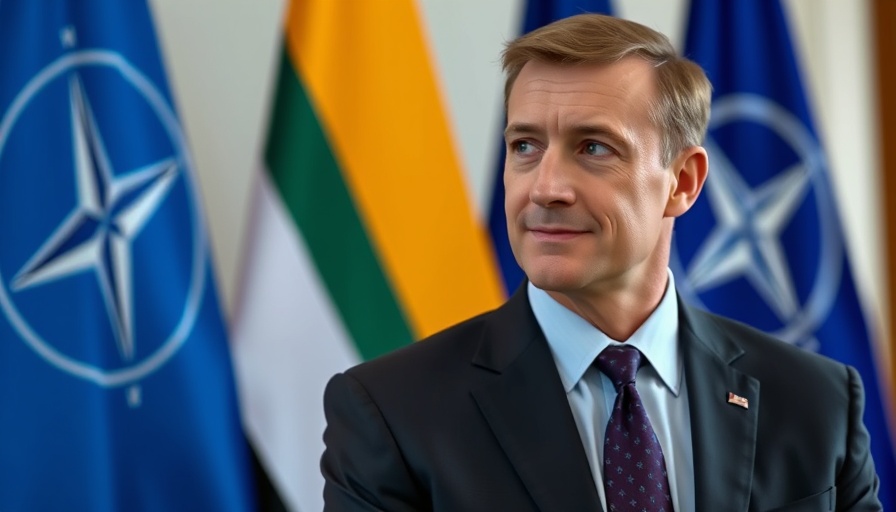
Poland's Nuclear Initiative: A Call for U.S. Warheads on Its Soil
In a bold move reflecting its growing security concerns, Poland's President has urged the United States to consider relocating nuclear warheads to Polish territory. This proposal comes amid rising tensions with Russia, particularly following the deployment of Russian nuclear capabilities in Belarus and the Kaliningrad region. Poland seeks to enhance its role within NATO's nuclear-sharing framework and bolster its deterrence capacities, signaling a significant shift in its defense posture.
Understanding the Context: Why Nuclear Weapons in Poland?
The idea of hosting U.S. nuclear weapons is not new for Poland. Amid geopolitical shifts, particularly after Russia's annexation of Crimea in 2014 and the subsequent invasion of Ukraine, Poland has advocated for a stronger NATO presence in Eastern Europe. The current Polish administration, led by the Law and Justice party, sees nuclear sharing as a means of reaffirming the U.S. commitment to Eastern European security. According to opinion polls, public support for this initiative has surged, with many Polish citizens backing the stationing of nuclear arms as a protective measure against perceived threats from Russia.
The Historical Framework of NATO's Nuclear Sharing Policy
NATO's nuclear sharing program began in the mid-20th century, allowing member countries to host U.S. nuclear weapons while also involving their national military operations. Countries such as Germany and Turkey are current participants, with their air forces operating dual-capable aircraft, which could be used for nuclear strikes if necessary. Poland's current initiatives to engage in this policy symbolize its deeper integration into NATO's military structure, ensuring a collaborative approach to defense.
The Military and Political Implications of Nuclear Sharing
Poland’s push to host American nuclear weapons has raised multiple military and political considerations. Militarily, hosting nuclear weapons could potentially deter Russian aggression, showcasing NATO’s commitment to defend its Eastern flank. Politically, this move is as much about internal and external messaging; it reassures Polish citizens and allies of their safety amidst ongoing conflict in Ukraine. However, there are concerns that such a deployment could escalate tensions with Russia, prompting aggressive responses from the Kremlin.
Challenges and Counterarguments: The Debate Over Nuclear Deterrence
Despite proponents’ assertions, critics argue that permanently stationing nuclear weapons in Poland could make the country a target for Russian retaliation. Drawing from Cold War strategies, any apparent escalation might compel Russia to act preemptively. Moreover, Poland would require NATO's consensus and the U.S. to approve such a move, both of which remain uncertain amidst differing member state perspectives.
Exploring the Future: Is This the Beginning of a New Arms Dynamic?
As Poland continues to advocate for a more extensive role within NATO's nuclear framework, observers anticipate significant discussions during the upcoming NATO meetings in Washington in 2024. How Poland navigates these complex discussions will be crucial in determining the future of its military alliances and the broader geopolitical landscape in Europe. The potential inclusion of Poland in nuclear sharing may set a precedent for future military arrangements among NATO members.
Conclusion: The Importance of Active Participation in NATO
In an unpredictable geopolitical climate, Poland's appeal to host U.S. nuclear warheads signifies its desire for a more secure existence and a proactive role in NATO. As citizens rally behind this initiative, the Polish government is taking significant strides to elevate its defense posture, emphasizing the critical need for strong deterrence against regional threats.
With international relations on a precipice, it's important for both the Polish government and its citizens to stay informed and engaged with developments in NATO strategies and potential implications for peace and security in Europe.
 Add Row
Add Row  Add
Add 



Write A Comment